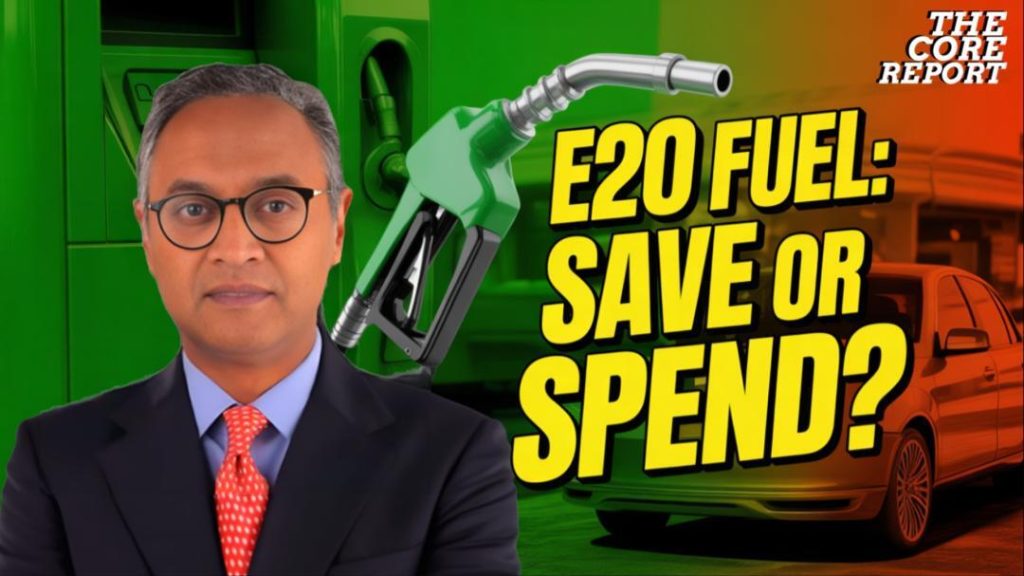
E20 Fuel in India: Benefits, Risks & What Vehicle Owners Must Know
India has taken a significant step towards reducing its carbon footprint and promoting energy security by introducing E20, a petrol blend containing 20% ethanol. This fuel is set to revolutionize the Indian automotive industry, and it’s essential for vehicle owners to understand the benefits, risks, and what they can expect from this new fuel blend. In this post, we’ll delve into the details of E20 fuel, its advantages, and what vehicle owners need to know to make an informed decision.
Benefits of E20 Fuel
The Indian government has been actively promoting the use of E20 fuel as part of its efforts to reduce carbon emissions, boost energy security, and support farmers. Ethanol, a biofuel, is derived from agricultural waste and sugarcane, providing a cleaner and more sustainable alternative to traditional fossil fuels. The benefits of E20 fuel are numerous:
- Reduced Carbon Emissions: E20 fuel emits 15-20% less carbon dioxide than regular petrol, making it an environmentally friendly option.
- Improved Energy Security: India’s reliance on imported crude oil will decrease with the use of E20 fuel, reducing the country’s energy dependence.
- Support to Farmers: The production of ethanol from sugarcane and other agricultural waste provides a new revenue stream for farmers, promoting sustainable agriculture and rural development.
- Improved Engine Performance: Studies conducted by the government have shown that E20 fuel can improve acceleration and power output, providing a smoother driving experience.
- Cost-Effective: E20 fuel is expected to be priced competitively with regular petrol, making it an attractive option for vehicle owners.
Risks Associated with E20 Fuel
While E20 fuel offers several benefits, there are risks associated with its use, particularly for older vehicles not designed to run on this fuel blend. Vehicle owners need to be aware of these risks to avoid potential engine damage and mileage loss:
- Engine Wear: E20 fuel can cause engine wear and tear due to its higher moisture content, which can lead to corrosion and decreased engine life.
- Fuel System Corrosion: The ethanol content in E20 fuel can corrode fuel system components, including tanks, pipes, and pumps, leading to costly repairs.
- Mileage Loss: Older vehicles not designed for E20 fuel may experience mileage loss due to the lower energy density of the fuel blend.
- Compatibility Issues: Some vehicles may not be compatible with E20 fuel, which can lead to engine problems and decreased performance.
What Vehicle Owners Must Know
As India moves towards a E20-compliant fuel ecosystem, vehicle owners need to take note of the following:
- Check Your Vehicle’s Compatibility: Verify whether your vehicle is designed to run on E20 fuel by checking the manufacturer’s specifications or consulting with a mechanic.
- Maintain Your Vehicle: Regular maintenance is crucial to ensure your vehicle runs smoothly on E20 fuel. Keep your fuel system clean, and perform routine checks on your engine and fuel injectors.
- Avoid Mixing with Other Fuels: E20 fuel should not be mixed with other fuel types, as this can lead to engine damage and decreased performance.
- Look for E20-Compliant Vehicles: As of 2025, all new vehicles sold in India will be E20-compliant. When purchasing a new vehicle, ensure it meets the E20 fuel blend requirements.
- Consult Your Manufacturer: If you’re unsure about your vehicle’s compatibility or have concerns about using E20 fuel, consult your manufacturer’s guidelines or contact a certified mechanic.
Conclusion
The introduction of E20 fuel in India marks a significant step towards reducing carbon emissions, promoting energy security, and supporting farmers. While there are risks associated with its use, vehicle owners can take steps to ensure a smooth transition to this new fuel blend. By understanding the benefits and risks of E20 fuel, vehicle owners can make informed decisions about their fuel choices and maintain their vehicles effectively. As India moves towards a cleaner and more sustainable fuel ecosystem, it’s essential to be aware of the latest developments and take steps to adapt to the changing fuel landscape.
News Source:
https://youtu.be/zM_EyWPyliQ






